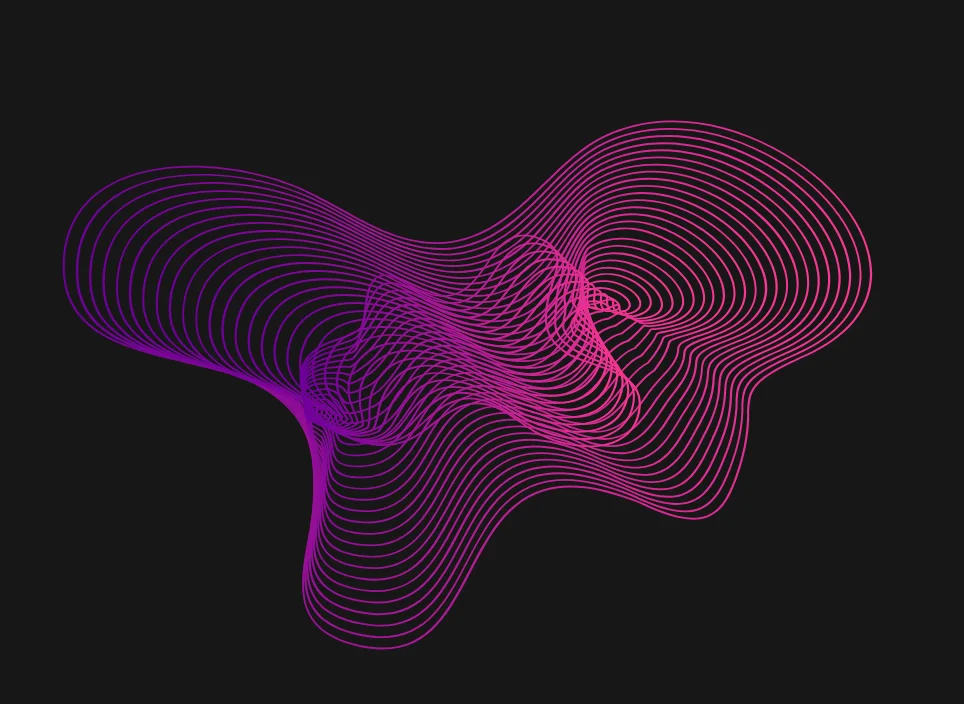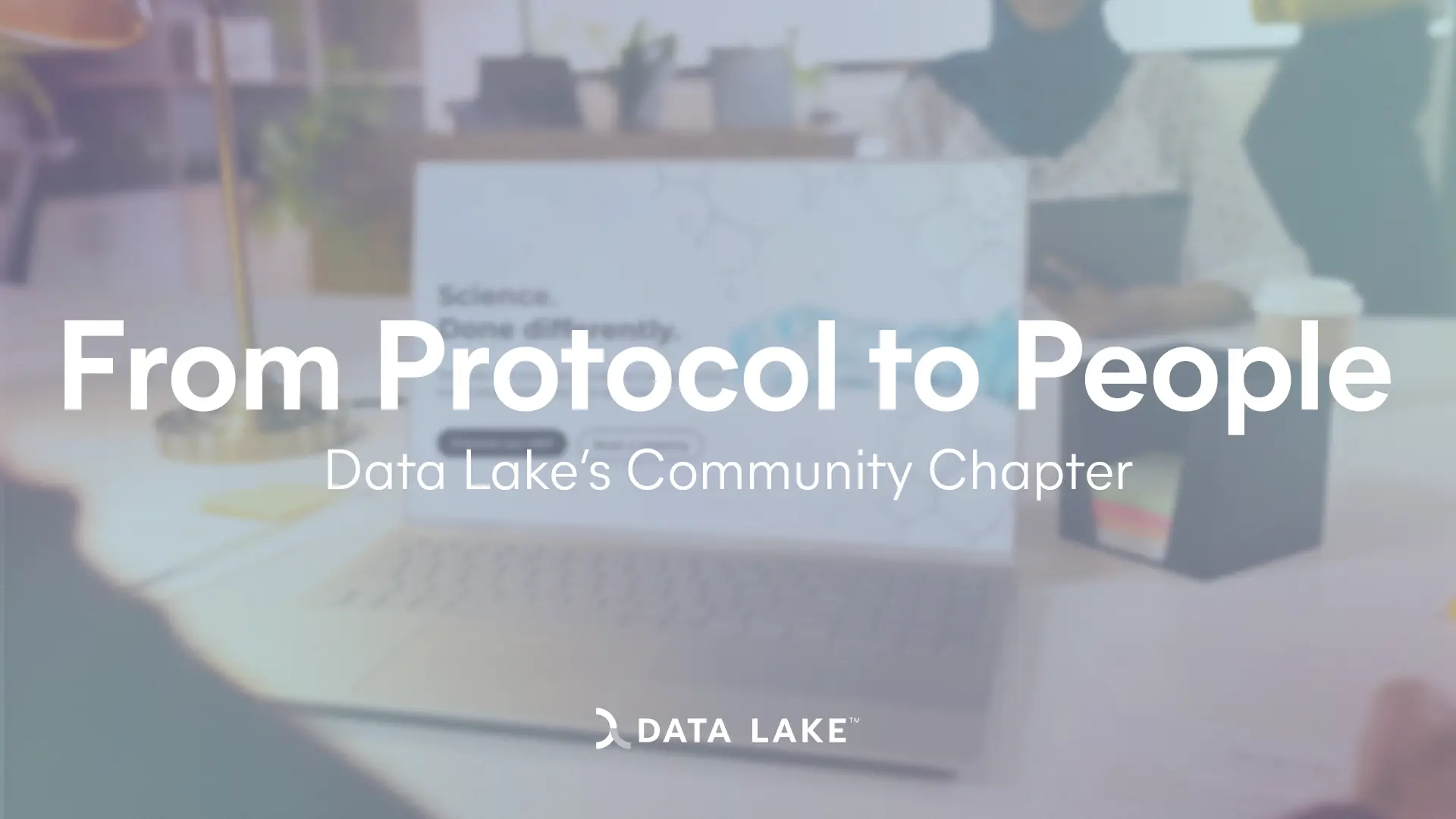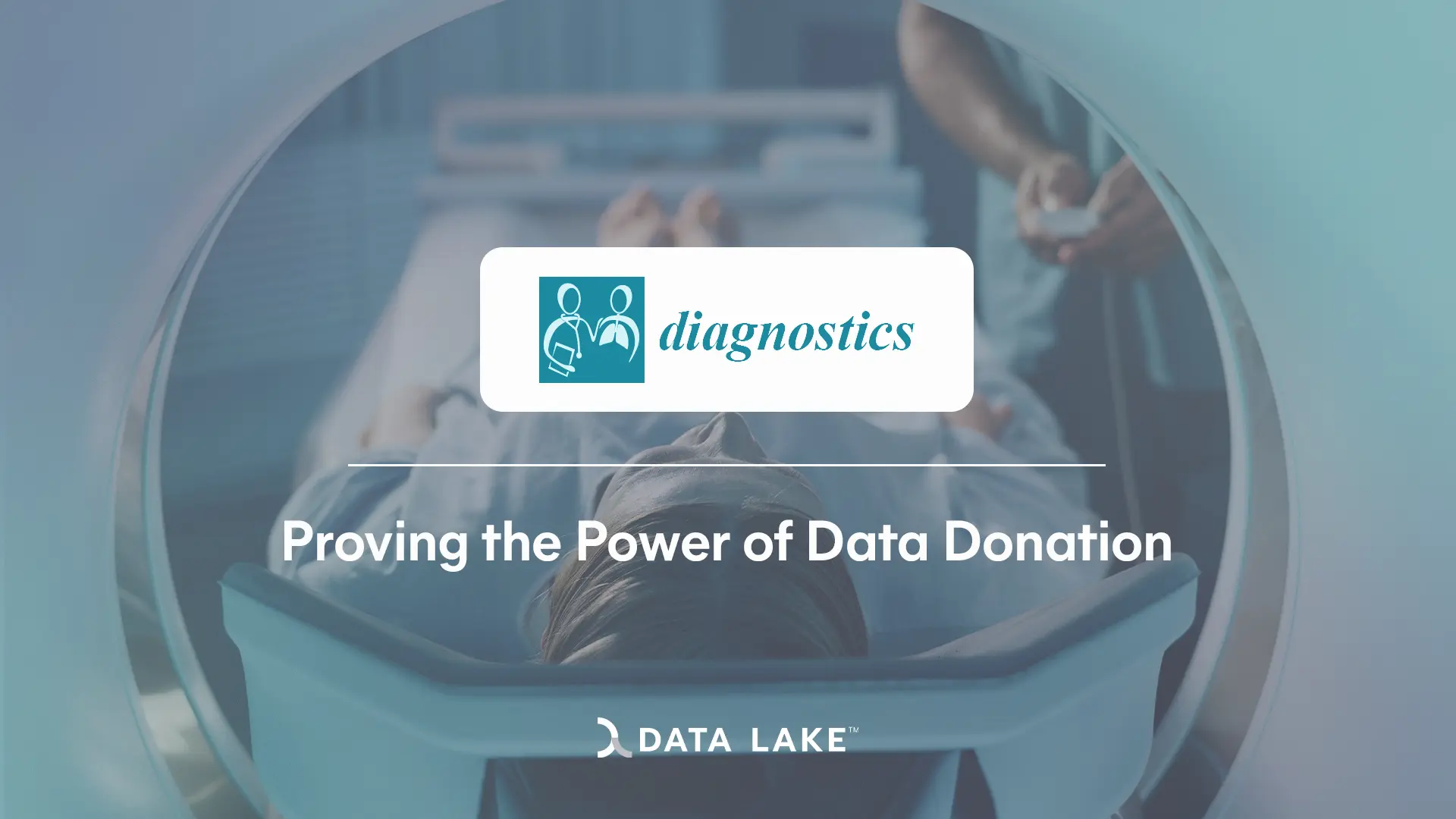Data Lake empowers you with the right to the usage of your own medical data in a safe, easy and transparent way, while providing substantial support for scientific research and medical studies.
Unlike existing medical data systems that let third parties exploit your data without asking for your permission nor sharing direct benefits with you, Data Lake is a blockchain-based exchange that gives you power over your data, allowing you to give and revoke consent of whether and when to use your data, and to receive passively our token from it.
The Data Lake mix has no precedent in history. It leverages the properties of the public blockchain to enable data access for research that was previously out of reach, while privacy, control and profits remain in the hands of the people. Read on to discover why the Data Lake system is not only vital to medical research, but an important part of democratizing data as well!
The problem of access to medical data
The medical data market
The modern economy is based on data and systems of its analysis. The potential source of data is each of us – consciously or not – disclosing more and more about ourselves to external companies. The medical sector is responsible for a significant part of data production, with an estimated 30% share in total data generation; a share estimated to reach 35% by 2025 1. The estimated total value of the global medical data market exceeds $200 billion.
Despite the size of such market however, gaining access to complete, structured, and interoperable data is nowadays the greatest obstacle for scientific and medical research.
Attempts to solve the problem
The problem of access to medical data is an intersection of ethical, legal and social order issues. Each country has addressed the issue in a completely different way and consistently with the values of its society.
In the USA, for example, the state has set the framework for a transactional approach on the matter. This approach enables the exchange of medical data among organizations, but in a manner in which the consensus, the anonymity and the share of the profit have to be partially given up by the patients 2.
China brags of the greatest medical data collection in the world, as data is taken from the patients without their consent and is then nationalized 3. This system represents a factor of competitive advantage for the country, but to the detriment of citizens’ privacy.
The European Union approach is more patient-oriented, but the framework set is still very general and incoherent. Each member country has different rules and practices on the matter, making the collection of a large, unified, and more useful database unfeasible.
Our team has direct experience of these limits, and is developing Data Lake to improve the current status of medical data on a global scale, from Bejing to Los Angeles.
How does it affect healthcare players?
From an economic perspective, the current situation does not bring benefits for all players in the system:
1. Data suppliers
For entities processing medical data such as hospitals and clinics, the patients’ data represent a cost rather than an opportunity, as they must incur costs for maintaining and securing the data repositories. Additionally, their usage and monetization requires the patients’ consent, mainly collected in university hospitals and in paper format, and is perceived as risky because of reputational, legal and compliance risks.
2. Data purchasers
Several entities are interested in purchasing medical data. These are mainly companies that conduct research and development in the areas of biotechnology, pharmacology, AI, and medicine. Access to medical data is a challenge for these entities due to the cost of data, data quality, incomplete anonymization, and legal or regulatory compliance uncertainty in the data acquisition process. The current situation inhibits the development of innovation in medicine, and is a barrier to the development of artificial intelligence, new drugs, and therapeutic methods. What is more, it also puts many smaller research groups at huge disadvantage, as they do not the have resources and relationships to efficiently gain access to data repositories to develop their solutions.
3. Patients
Nowadays, the main beneficiaries of profits are private companies, often trading medical data without the knowledge of patients, and additionally failing to sufficiently secure them against de-anonymization. Patients – the main stakeholders – do not have an adequate influence on the data flow system and in practice do not decide whether and for what purpose their data will be processed. What’s more, the patient is currently deprived of the most elementary gratification – the awareness that one’s disease and data generated in the diagnostic and therapeutic process may contribute to the development of new, effective forms of treatment for subsequent patients.
4. Public trust organizations
Public trust organizations, just like Data Lake, work for the benefit of patients. Public trust organizations will become patients’ data controllers, taking legal responsibility for them. The first data administrator of Polish patients will be the Donate Your Data Foundation, established by the Data Lake team and various public trust organizations. This foundation will be responsible for promoting data donation and acquiring new data providers. It will also build the credibility of the project through cooperation with numerous industry entities.
The solution: Data Lake
To solve the problem of access to medical data, we propose the creation of a global medical data donation system as an example of a grassroots, pro-patient awareness social initiative. In our opinion, this is the only path we can take to fully preserve the values of respecting the privacy of the individual (patient), as well as ensuring access to medical data, necessary for the development of technology and the knowledge-based economy.
How does it work
The Data Lake ecosystem creates an international market for exchanging medical data. Its currency is going to be the $LAKE token.
-
Patients gives consent to the use of their medical data by submitting a declaration of will, which is stored on blockchain and can be verified at any time by the data donor or a public trust entity.
-
Data buyers manifest demand for data with certain parameters.
-
Data providers select and anonymize the patients who meet the indicated criteria and gave consent in the Data Lake system.
-
The public trust organization must legally and technologically approve the flow of this data. This protects the interests of patients and token holders.
-
The buyers pay in $LAKE tokens for access to anonymous medical data.
-
The patient can revoke their open consent status at any time and withdraw the $LAKE tokens earned any time.
Why blockchain and $LAKE token?
Today, the process of collection and usage of medical data from citizens is so complex and cumbersome that the parties involved often give up, missing the enormous opportunities this market holds. Nowadays, the asymmetry of information benefits only large corporations, while citizens are not informed on the economic value of their medical data and – most importantly – of the importance that they have for the medical research.
In order to create an alternative to the current stagnant system, Data Lake is relying on cutting edge technologies, such as a public blockchain for storing the consent of citizens, and its utility token $LAKE.
-
The Data Lake system will launch on the Polygon blockchain.
Currently, the consent of patients is collected on paper. This system has several vulnerabilities: it represents a cost and a risk for the centralized entity that stores it, it is difficult to manage by the parties involved in the market, and it is impossible to keep updated efficiently.
Data Lake’s revolution is instead about bringing transparency, censorship-resistance, decentralization and accessibility. To do so, we knew it was vital for us to choose a public blockchain: we chose Polygon as the best blockchain for this purpose. Patients can manage their consent by digitally signing transactions that get registered on the decentralized and immutable ledger of Polygon. At the same time, our platform sorts these transactions to provide a clear and constantly updated view to the patients of the current status and usage of their medical data.
-
The $LAKE token.
The main scope of Data Lake is to create a market that will make the interactions among data donors, suppliers, buyers and public organization, possible, efficient and convenient for everyone. To do so, a token with particular utility is needed, one whose flow could be directed to serve as incentive for all the parties involved to act in everyone’s interest.
Another reason why we opted for creating $LAKE, is that our platform is being created and built for the people. As such, it made the most sense to give the possibility to the same people to invest in us and bootstrap our system. The best way to involve the public in the Data Lake revolution is through the creation of a token, together with a fair distribution of it. Public blockchains as Polygon are an inclusive and non-discriminatory platform, as they are accessible everywhere by anyone with an internet connection.
Conclusion
In a world in which data is essential for progress, we believe that patients should gain control over their own medical data. The practice of using our personal information without our informed consent and without recognizing our data value needs to end.
With Data Lake, anyone in the world becomes able to consciously donate their medical data and help millions of patients, just like we do now by donating blood or bone marrow to save lives. All with guaranteed anonymity, and the ability to give or revoke consent at any time.
We are creating a transparent and efficient blockchain-based system to empower the people with awareness and passive income, at the same time improving the exchange of medical data to benefit medical research and save lives.
Whether you are a patient, a data supplier, a data buyer or a public organization, join us on our journey to revolutionize medicine and democratize medical data.
1 https://www.rbccm.com/en/gib/healthcare/episode/the_healthcare_data_explosion




